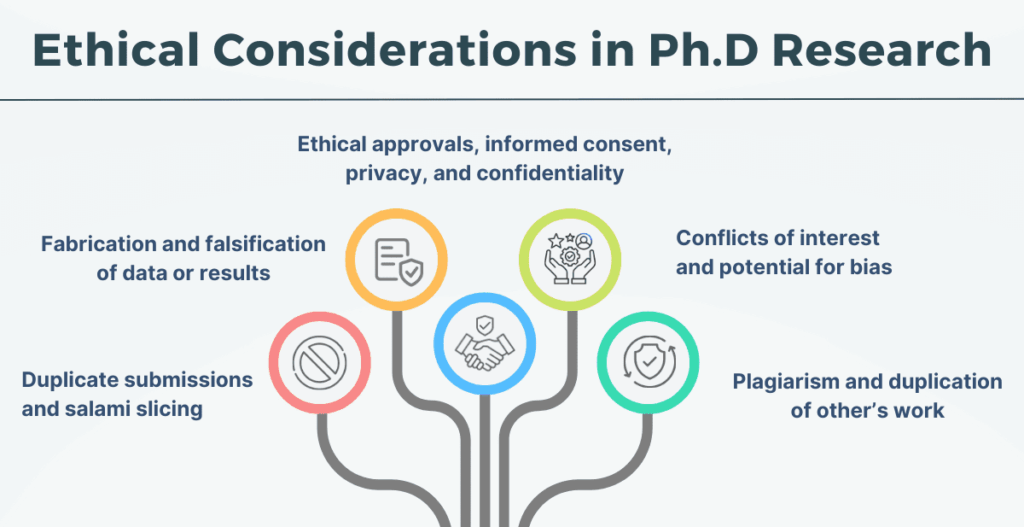What are some common ethical dilemmas that researchers face when writing a dissertation, and how can they be effectively addressed in the ethical consideration section?
Writing a dissertation can be a daunting task, and one of the most critical components of this process is the ethical consideration section. This section is where you demonstrate your understanding of the ethical implications of your research and outline the steps you will take to ensure that your study is conducted in an ethical and responsible manner. In this article, we will provide you with a comprehensive guide on how to write an effective ethical consideration section for your dissertation, including benefits, practical tips, and case studies to help you succeed.
Introduction to Ethical Considerations in Research
Ethical considerations are a crucial aspect of any research project, and they play a vital role in ensuring that your study is conducted in a way that respects the rights and dignity of all individuals involved. Ethical considerations involve thinking about the potential consequences of your research and taking steps to minimize any harm or negative impact on participants, the environment, or society as a whole. In the context of a dissertation, the ethical consideration section is where you outline your approach to addressing these ethical concerns and demonstrate your commitment to conducting responsible and ethical research.
Benefits of Including an Ethical Consideration Section
There are several benefits to including a strong ethical consideration section in your dissertation, including:
-
- Enhanced credibility: By demonstrating your understanding of ethical considerations and outlining your approach to addressing them, you can enhance the credibility of your research and establish trust with your readers.
-
- Increased validity: A well-written ethical consideration section can help to increase the validity of your research by demonstrating that you have taken steps to minimize bias and ensure the accuracy of your findings.
-
- Improved participant protection: By outlining your approach to protecting the rights and dignity of participants, you can help to ensure that your research is conducted in a way that respects and protects the well-being of all individuals involved.
Practical Tips for Writing an Ethical Consideration Section
Writing an effective ethical consideration section requires careful thought and attention to detail. Here are some practical tips to help you get started:
-
- Start early: Don’t leave your ethical consideration section until the last minute. Start thinking about ethical considerations early on in your research process, and continue to revisit and refine your approach as your project evolves.
-
- Conduct a thorough literature review: A thorough literature review can help you to identify potential ethical concerns and develop a comprehensive understanding of the ethical implications of your research.
-
- Consider multiple perspectives: Think about the potential impact of your research on different stakeholders, including participants, the environment, and society as a whole.
-
- Be transparent and honest: Be transparent and honest in your ethical consideration section, and acknowledge any potential limitations or biases in your research.
Case Studies: Examples of Effective Ethical Consideration Sections
Here are a few examples of effective ethical consideration sections from different fields of study:
| Field of Study | Example of Ethical Consideration Section |
|---|---|
| Healthcare | Informed consent was obtained from all participants, and all data was anonymized to protect participant confidentiality. |
| Environmental Science | The study was designed to minimize environmental impact, and all necessary permits and approvals were obtained before data collection began. |
| Social Science | Participants were fully informed about the purpose and potential risks of the study, and all data was collected in a way that respected participant autonomy and dignity. |
First-Hand Experience: Lessons Learned from Writing an Ethical Consideration Section
Writing an ethical consideration section can be a challenging but valuable learning experience. Here are a few lessons that I learned from writing my own ethical consideration section:
One of the biggest challenges I faced was balancing the need to provide detailed information about my research methods with the need to protect participant confidentiality. To address this challenge, I worked closely with my supervisor and used a variety of strategies, such as anonymizing data and using pseudonyms, to ensure that participant confidentiality was maintained.
Another important lesson I learned was the importance of being transparent and honest in my ethical consideration section. I made sure to acknowledge any potential limitations or biases in my research and to provide a clear explanation of how I addressed these issues.
Conclusion
In conclusion, writing an effective ethical consideration section is a critical component of any dissertation. By following the tips and guidelines outlined in this article, you can create a strong ethical consideration section that enhances the credibility and validity of your research, while also protecting the rights and dignity of all individuals involved. Remember to start early, conduct a thorough literature review, consider multiple perspectives, and be transparent and honest in your approach. With careful thought and attention to detail, you can create an ethical consideration section that meets the highest standards of academic integrity and responsible research practice.
By including a strong ethical consideration section in your dissertation, you can demonstrate your commitment to conducting responsible and ethical research, and make a positive contribution to your field of study. So why not get started today, and take the first step towards creating a high-quality ethical consideration section that will enhance the impact and validity of your research?

